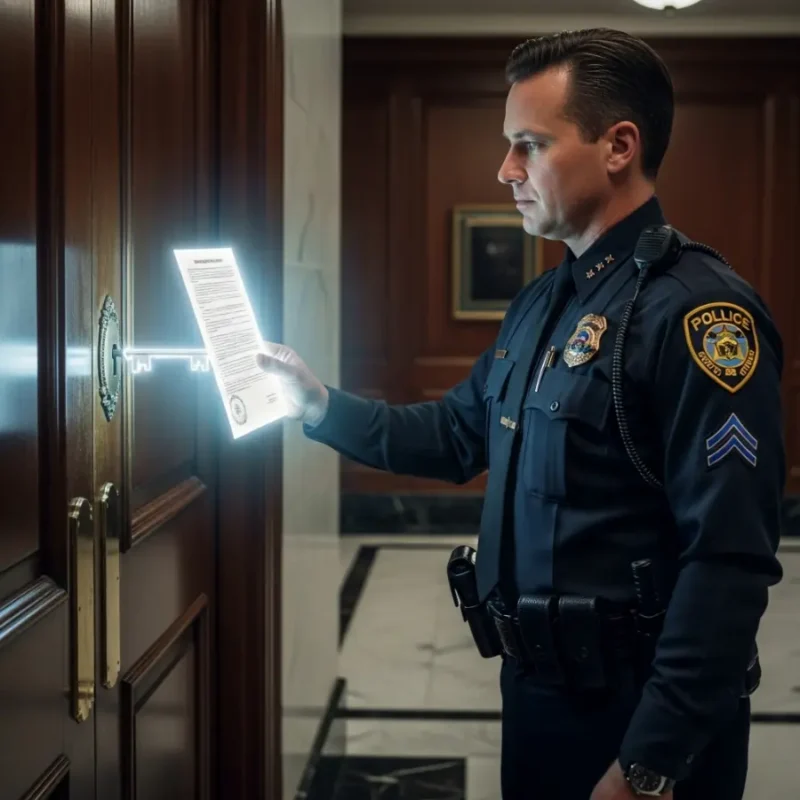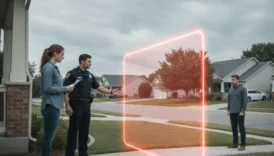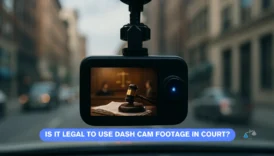When Is a Search Warrant Required by Law?

A search warrant is a legal order issued by a judge or magistrate that authorizes law enforcement to search a specific place and seize specific items. Warrants are required under the Fourth Amendment of the U.S. Constitution (and similar protections in other jurisdictions) to prevent unreasonable searches and seizures. However, not every police search requires a warrant. Understanding when a warrant is necessary—and when exceptions apply—is essential for protecting individual rights while enabling law enforcement to perform its duties.
What Is a Search Warrant?
A search warrant is a legal document issued by a judge or magistrate that authorizes law enforcement officers to search a specific location for particular evidence related to a crime. Warrants serve as a safeguard for individual privacy rights, ensuring that government officials cannot conduct arbitrary or unreasonable searches. The concept is rooted in the principle that people should be secure in their homes, papers, and possessions unless a legitimate legal justification exists.
Key Characteristics of a Search Warrant
- Judicial Authorization
- A warrant must be signed by a neutral and detached judge or magistrate.
- This ensures that the decision to permit a search is made by someone independent of law enforcement.
- Probable Cause Requirement
- Officers must show sufficient evidence to establish probable cause—a reasonable belief that evidence of a crime will be found at the place to be searched.
- Probable cause is more than suspicion but less than absolute proof.
- Particularity
- A warrant must clearly state the place to be searched and the items to be seized.
- For example, a warrant might authorize a search of a suspect’s garage for stolen electronics, not a general search of the entire house for anything incriminating.
- Limited Scope
- Officers cannot exceed the authority granted. If the warrant permits a search for firearms in a living room, searching through private emails on a laptop in the bedroom would be outside its scope.
Purpose of a Search Warrant
- Protect Privacy: Prevents government intrusion without judicial oversight.
- Promote Accountability: Requires law enforcement to justify searches with evidence.
- Prevent Abuse: Stops “fishing expeditions” where officers search aimlessly for any wrongdoing.
Example Scenario
If police suspect someone is hiding illegal drugs in their basement, they must present evidence to a judge. If the judge finds probable cause, a search warrant is issued specifically for the basement and for drugs or related paraphernalia. Without such authorization, searching the home would violate constitutional protections.
Key Takeaway
A search warrant is not just a formality; it is a constitutional safeguard balancing the government’s duty to investigate crimes with an individual’s right to privacy. It ensures that searches are lawful, targeted, and justified by evidence, not arbitrary suspicion.
Constitutional Basis for Search Warrants
The requirement for search warrants in the United States is grounded in the Fourth Amendment to the U.S. Constitution, which protects individuals from unreasonable searches and seizures. This constitutional provision reflects a deep historical concern for privacy and liberty, stemming from abuses by colonial authorities who conducted broad and intrusive searches without justification.
The Fourth Amendment Text
The Fourth Amendment states:
“The right of the people to be secure in their persons, houses, papers, and effects, against unreasonable searches and seizures, shall not be violated, and no Warrants shall issue, but upon probable cause, supported by Oath or affirmation, and particularly describing the place to be searched, and the persons or things to be seized.”
This text establishes two critical principles:
- Protection Against Unreasonable Searches: Law enforcement must have a legitimate reason to intrude on privacy.
- Warrant Requirement: Warrants must be issued only upon probable cause and must specify where the search will occur and what will be seized.
Why It Matters
The Fourth Amendment exists to balance government power with individual freedom. Without these protections, authorities could search homes, seize property, or target individuals arbitrarily. Instead, the Constitution requires judicial oversight and evidence before a search occurs.
Probable Cause Standard
“Probable cause” means there must be a reasonable belief—based on facts, not mere suspicion—that a crime has been committed and that evidence of the crime will be found in the location to be searched. For example, if police receive a credible tip and corroborating evidence that stolen goods are in a warehouse, they can request a warrant for that specific property.
Judicial Oversight
A neutral magistrate or judge must evaluate whether probable cause exists. This separation ensures that law enforcement cannot act as both investigator and judge of its own authority. The judicial check is central to maintaining fairness and preventing abuse of power.
Broader Application
While the Fourth Amendment applies in the U.S., many other countries have similar constitutional or statutory protections. For example:
- Canada: Section 8 of the Canadian Charter of Rights and Freedoms guarantees protection against unreasonable search and seizure.
- European Union: The European Convention on Human Rights (Article 8) protects private and family life, requiring justification for government intrusion.
Key Takeaway
The constitutional foundation of search warrants is not merely a procedural rule—it is a cornerstone of privacy and freedom. By requiring probable cause and judicial approval, the law ensures that searches serve justice without eroding individual rights.
When a Search Warrant Is Required
A search warrant is generally required whenever law enforcement wants to conduct a non-consensual search of a place where a person has a reasonable expectation of privacy. This principle is rooted in the Fourth Amendment and is designed to prevent government overreach. Understanding when warrants are mandatory is essential for both citizens and law enforcement officers.
Situations Requiring a Warrant
- Private Homes
- The highest level of privacy protection is given to residences.
- Police typically need a warrant to search inside someone’s home, apartment, or other dwelling, even if they believe evidence of a crime exists.
- Personal Belongings
- Containers such as backpacks, suitcases, and locked boxes are generally protected.
- Example: Police cannot open a locked briefcase without a warrant unless an exception applies.
- Electronic Devices
- Courts increasingly recognize that smartphones, computers, and tablets contain vast amounts of personal data.
- Accessing the contents of these devices usually requires a warrant.
- Business Premises
- Offices, warehouses, and other commercial spaces are subject to warrant requirements, especially if the search goes beyond public areas.
- Mail and Packages
- Sealed letters and packages are considered private and require a warrant before being opened by authorities.
Probable Cause Requirement
In all of the above situations, police must demonstrate probable cause—specific, factual reasons to believe that evidence of a crime is located in the area they want to search. A general suspicion or a “hunch” is not enough.
Illustrative Example
Suppose police suspect a person of drug trafficking. They cannot simply enter the suspect’s home to look for drugs. Instead, they must:
- Present evidence to a judge showing why they believe drugs are inside.
- Obtain a warrant that specifies the location (e.g., the suspect’s basement) and the items sought (e.g., illegal narcotics, scales, packaging).
Only then can they lawfully conduct the search.
Why Warrants Are Required in These Cases
- To protect individual privacy rights.
- To ensure searches are targeted and justified, not fishing expeditions.
- To create accountability through judicial oversight.
Key Takeaway
A search warrant is required whenever law enforcement seeks to enter areas with a reasonable expectation of privacy—most commonly homes, personal belongings, electronic devices, and sealed communications. Without a warrant or a valid exception, such searches are unconstitutional and any evidence obtained may be excluded at trial.
Exceptions to the Warrant Requirement
While the Fourth Amendment establishes the general rule that searches require a warrant, the U.S. Supreme Court has recognized several exceptions where law enforcement may conduct a search without prior judicial approval. These exceptions balance the need for privacy with the practical demands of policing.
1. Consent Searches
- If an individual voluntarily gives consent, police may search without a warrant.
- The consent must be given freely, not coerced.
- Example: If a homeowner invites police to “look around,” that search is typically valid.
2. Search Incident to Lawful Arrest
- When police lawfully arrest someone, they may search the person and the immediate area around them for weapons or evidence.
- This ensures officer safety and prevents destruction of evidence.
- Example: After arresting a suspect in their car, police may search the passenger compartment for weapons or contraband.
3. Plain View Doctrine
- If police are lawfully present and evidence is clearly visible, they may seize it without a warrant.
- Example: While executing a warrant for stolen electronics, officers may seize illegal drugs left on a table in plain sight.
4. Exigent Circumstances
- In emergencies, police can act without a warrant when waiting would endanger life, allow a suspect to escape, or risk destruction of evidence.
- Example: Officers hear screams inside a house and enter immediately to help.
5. Automobile Exception
- Because vehicles are mobile, courts allow warrantless searches if police have probable cause to believe a car contains evidence of a crime.
- Example: If officers smell marijuana during a traffic stop, they may search the car without obtaining a warrant.
6. Stop and Frisk (Terry Stops)
- Police may briefly stop and pat down a person if they have reasonable suspicion that the person is armed and dangerous.
- This is limited to ensuring officer safety and does not permit full searches without further justification.
7. Border and Airport Searches
- Routine searches at international borders and airports do not require warrants due to heightened security concerns.
Why These Exceptions Exist
- To allow law enforcement flexibility in urgent or obvious situations.
- To protect public safety while still respecting constitutional rights.
Key Takeaway
Warrants are the rule, but exceptions exist where immediate action or clear circumstances justify a search without one. Courts carefully review these cases to ensure that exceptions do not swallow the rule, preserving the balance between law enforcement needs and individual freedoms.
How Law Enforcement Obtains a Search Warrant
Obtaining a search warrant is not a casual step for law enforcement; it is a formal legal process designed to ensure that searches are justified, limited, and consistent with constitutional protections. Judges or magistrates act as neutral decision-makers to review the evidence and decide whether probable cause exists.
Step-by-Step Process
- Investigation and Evidence Gathering
- Before requesting a warrant, police must conduct preliminary investigations.
- This may include surveillance, witness interviews, confidential informants, or analysis of records.
- Affidavit Preparation
- An officer submits a written statement (affidavit) under oath.
- The affidavit must detail the facts supporting probable cause, describe the specific location to be searched, and identify the items to be seized.
- Judicial Review
- A judge or magistrate reviews the affidavit.
- The judge must be “neutral and detached,” meaning they cannot be directly involved in the investigation.
- Probable Cause Determination
- The judge evaluates whether the facts establish probable cause that evidence of a crime exists at the specified location.
- Probable cause requires more than suspicion but less than proof beyond a reasonable doubt.
- Issuance of the Warrant
- If the judge is satisfied, they issue the warrant, which clearly states:
- The location to be searched.
- The specific items to be seized.
- The timeframe in which the search must occur.
- If the judge is satisfied, they issue the warrant, which clearly states:
- Execution of the Warrant
- Police must execute the warrant within the time allowed and in accordance with procedural rules, often during daytime hours unless otherwise specified.
- Return and Inventory
- After the search, officers must file a return with the court, listing the items seized.
- This ensures transparency and accountability.
Example Scenario
Suppose police believe a suspect is storing illegal firearms in their garage. They gather statements from neighbors, obtain surveillance footage, and find shell casings linked to the suspect. An officer then writes an affidavit detailing this evidence. A judge reviews the affidavit and, finding probable cause, issues a warrant authorizing a search of the suspect’s garage for firearms and related ammunition.
Key Safeguards
- Judicial Oversight: Prevents unchecked police power.
- Particularity: Ensures searches are limited and targeted.
- Documentation: Creates a paper trail that can be reviewed in court if the search is later challenged.
Key Takeaway
Obtaining a search warrant requires probable cause, judicial approval, and precise limits. This process ensures that law enforcement actions are lawful, justified, and respectful of individual rights.
What Must Be Included in a Search Warrant?
A search warrant is not valid unless it contains certain specific details required by law. These requirements ensure that searches are targeted, limited in scope, and respectful of individual rights under the Fourth Amendment. If any of these elements are missing or vague, the warrant may be invalid, and evidence obtained could be excluded in court.
1. Identification of the Judge or Magistrate
- The warrant must clearly state the authority that issued it.
- Only a neutral and detached judicial officer can authorize a search.
2. Probable Cause Statement
- The warrant is based on an affidavit sworn by a law enforcement officer.
- This affidavit must outline the facts and evidence supporting the belief that a crime has been committed and that relevant evidence exists at the specified location.
3. Specific Location to Be Searched
- The warrant must describe the place with precision.
- Example: “The basement of 123 Main Street” rather than simply “the house.”
- This prevents law enforcement from searching areas unrelated to the investigation.
4. Description of Items to Be Seized
- Warrants must identify exactly what police are allowed to take.
- Examples: firearms, narcotics, financial records, computers.
- Vague terms like “any illegal items” are insufficient.
5. Timeframe for Execution
- Warrants usually include a time limit, often requiring execution within 10–14 days.
- Many jurisdictions restrict searches to daytime hours unless otherwise specified.
6. Signature and Date
- The judge or magistrate must sign and date the warrant, confirming judicial approval.
Example of a Properly Drafted Warrant
Imagine police suspect illegal drug activity in an apartment. A valid warrant would state:
- The exact address and unit number.
- The areas authorized for search (e.g., kitchen cabinets, bedroom dresser).
- The items sought (e.g., cocaine, paraphernalia, financial ledgers).
- A clear timeframe for the search.
Why These Requirements Matter
These elements prevent general warrants—the kind of broad, open-ended search orders that the framers of the Constitution wanted to prohibit. By requiring particularity, the law protects against fishing expeditions and ensures searches are justified and limited.
Key Takeaway
For a search warrant to be valid, it must include:
- Judicial authorization.
- Probable cause.
- Specific details about the location, items, and timeframe.
Without these safeguards, the warrant may be struck down, and the evidence collected may be excluded from trial.
Consequences of an Invalid or Unlawful Search
When law enforcement conducts a search without a valid warrant—or when they exceed the scope of a warrant—the evidence obtained may not be admissible in court. This principle protects individuals from government overreach and ensures that constitutional rights remain meaningful.
The Exclusionary Rule
- The primary consequence of an unlawful search is that evidence obtained is excluded from trial.
- This means prosecutors cannot use the evidence against the defendant, even if it clearly shows wrongdoing.
- Example: If police search a home without a warrant or valid exception and find illegal drugs, that evidence may be thrown out.
The “Fruit of the Poisonous Tree” Doctrine
- Not only is the unlawfully obtained evidence excluded, but so is any additional evidence derived from it.
- Example: If police illegally seize a suspect’s phone and use it to find incriminating emails, those emails may also be excluded.
Civil Liability and Lawsuits
- Individuals subjected to unlawful searches may file civil lawsuits under federal or state law, claiming violations of constitutional rights.
- In the U.S., Section 1983 lawsuits allow citizens to sue government officials for rights violations.
Suppression Hearings
- Defense attorneys can file motions to suppress unlawfully obtained evidence.
- Judges hold hearings to determine whether the evidence should be excluded.
- This process often shapes the outcome of a case—if critical evidence is suppressed, the prosecution may drop charges.
Exceptions to Exclusion
Courts sometimes allow unlawfully obtained evidence in limited circumstances:
- Good Faith Exception: If police relied on a defective warrant they reasonably believed was valid, evidence may still be admitted.
- Inevitable Discovery Rule: If the evidence would have been found legally anyway, exclusion may not apply.
- Independent Source Doctrine: If evidence was discovered separately from the illegal search, it may still be used.
Broader Consequences for Law Enforcement
- Courts may sanction officers or agencies that repeatedly violate warrant rules.
- Reputational damage to law enforcement agencies may undermine public trust.
Key Takeaway
Unlawful searches jeopardize entire cases. The exclusionary rule and related doctrines are designed not just to protect defendants, but to deter police misconduct and reinforce constitutional limits. Evidence obtained unlawfully may weaken or even destroy the prosecution’s case, proving how vital proper warrant procedures are in upholding justice.
Real-Life Examples of Warrant Use
Examining real-life scenarios helps clarify when search warrants are necessary and how courts enforce the rules surrounding them. These examples demonstrate both lawful and unlawful uses of warrants in practice.
Example 1: Drug Trafficking Investigation
Police receive tips that a suspect is storing narcotics in a private home. Surveillance shows multiple people entering and leaving the property in patterns consistent with drug sales. Officers present this evidence to a judge, who issues a search warrant for the residence and garage.
- Outcome: Police lawfully find narcotics and related paraphernalia. The evidence is admissible because the warrant was supported by probable cause and specific details.
Example 2: Invalid General Warrant
Officers suspect illegal gambling at a local bar. They obtain a warrant that broadly authorizes them to “search the premises for any illegal activity.” During the search, they seize unrelated financial documents and private property.
- Outcome: The warrant lacked particularity—it was too vague. The seized evidence is excluded under the exclusionary rule, and the case weakens substantially.
Example 3: Cell Phone Search After Arrest
A man is arrested for robbery. Police seize his cell phone and begin browsing messages without a warrant. Later, they find incriminating texts linking him to the crime.
- Outcome: In Riley v. California (2014), the U.S. Supreme Court ruled that cell phone searches generally require a warrant. The texts would be excluded unless an exception applied.
Example 4: Emergency Circumstances
Police hear screams coming from a locked house. Believing someone is in danger, they enter without a warrant and find evidence of domestic violence.
- Outcome: This is valid under the exigent circumstances exception, since immediate action was necessary to prevent harm.
Example 5: Workplace Search
Authorities suspect a company of financial fraud. They obtain a warrant specifically authorizing the seizure of accounting ledgers and computers from the main office. Officers carefully execute the warrant, seizing only what was listed.
- Outcome: The evidence is admissible, showing proper judicial oversight and compliance with the warrant’s scope.
Key Insight
These examples highlight the balance between privacy rights and law enforcement needs:
- Properly obtained warrants ensure evidence is admissible.
- Overbroad or unjustified searches risk exclusion and harm to a case.
- Courts take particularity and probable cause seriously, especially in the digital age where personal data is highly sensitive.
Key Takeaway
Real-life cases confirm that warrants are not mere technicalities. They are constitutional safeguards that directly affect whether evidence stands or falls in court.
Rights of Individuals During a Search
When law enforcement officers execute a search warrant—or conduct a search under a recognized exception—individuals still retain important legal rights. These rights are designed to protect against abuse of power, ensure fair treatment, and preserve constitutional safeguards under the Fourth Amendment.
1. Right to Be Shown the Warrant
- If officers are executing a warrant, you have the right to ask to see it.
- The warrant should specify the location, the items being sought, and the judge’s authorization.
- Officers do not need to hand over the physical document before beginning, but they must make it available during the search.
2. Right to Limited Scope
- Officers may only search the areas described in the warrant.
- Example: If the warrant authorizes a search for stolen televisions, police cannot search inside desk drawers where TVs could not reasonably be located.
3. Right Against Unlawful Seizure
- Police may only seize items listed in the warrant, unless contraband is in plain view.
- If officers seize items outside the warrant’s scope, those items can be challenged and excluded from trial.
4. Right to Remain Silent
- Individuals are not required to answer officers’ questions during a search.
- Anything voluntarily said may be used later in court, so exercising the right to remain silent is often advisable.
5. Right to Legal Counsel
- While attorneys do not usually intervene during searches, individuals can contact their lawyer immediately.
- An attorney may later challenge the warrant or the manner in which the search was conducted.
6. Right to Be Free from Excessive Force
- Law enforcement must execute searches reasonably.
- Destruction of property, intimidation, or unnecessary force may violate constitutional protections and open the door to civil lawsuits.
Example Scenario
Police execute a valid warrant for narcotics in a suspect’s apartment. They search the kitchen and bedroom, where drugs might reasonably be hidden. However, if officers begin seizing unrelated jewelry without justification, the suspect’s attorney can challenge the seizure as unlawful.
Key Considerations for Individuals
- Stay calm and avoid obstructing officers.
- Politely request to see the warrant.
- Take note of what officers seize.
- Contact an attorney as soon as possible.
Key Takeaway
Even during a lawful search, individuals are not powerless. Knowing your rights—such as limiting the scope of the search, remaining silent, and consulting an attorney—helps protect your constitutional freedoms while ensuring that law enforcement acts within legal boundaries.
Final Thoughts on Search Warrants
Search warrants sit at the heart of the balance between individual rights and law enforcement responsibilities. They ensure that government officials cannot intrude on private life without justification, while still giving police the authority they need to investigate crime and protect public safety.
Why Search Warrants Matter
- For Citizens: Warrants protect privacy and security in homes, belongings, and digital spaces. They ensure that searches are not arbitrary or based on personal bias.
- For Law Enforcement: Warrants provide legal legitimacy, shielding officers from claims of unlawful conduct when searches are properly authorized.
- For Courts: Warrants ensure that evidence is gathered fairly and can be admitted at trial, strengthening the integrity of the justice system.
The Balance of Interests
- Without warrant requirements, individuals would be vulnerable to constant surveillance and intrusion.
- Without exceptions, police might be unable to act quickly in emergencies.
- The legal system, therefore, strikes a balance: warrants are the rule, but carefully defined exceptions allow flexibility in urgent situations.
Modern Challenges
- The rise of digital technology raises new questions about how warrant protections apply to smartphones, cloud storage, and online communications.
- Courts increasingly recognize that digital searches require strict warrant standards because of the vast amount of sensitive personal data involved.
Key Takeaway
Search warrants are not just technical paperwork—they are constitutional safeguards. They protect against government abuse, preserve the legitimacy of law enforcement, and reinforce the principle that justice must be pursued fairly and lawfully.
Closing Thought
For individuals, knowing when warrants are required—and what rights apply during a search—can make the difference between protecting one’s privacy and unknowingly giving up constitutional protections. For law enforcement, following the warrant process strengthens both the case and the public’s trust in the justice system.
Frequently Asked Questions (FAQs)
1. What is a search warrant?
A search warrant is a legal document issued by a judge or magistrate that authorizes police to search a specific location for specific evidence.
2. When do police need a search warrant?
Police generally need a warrant whenever they want to search a place where a person has a reasonable expectation of privacy, such as a home, personal belongings, or electronic devices.
3. What is “probable cause” in relation to a warrant?
Probable cause means there are sufficient facts and evidence for a reasonable belief that a crime has been committed and evidence of it will be found in the place to be searched.
4. Are there situations where police do not need a search warrant?
Yes. Exceptions include consent searches, searches incident to arrest, exigent circumstances, the plain view doctrine, vehicle searches with probable cause, and border/airport inspections.
5. Can police search my phone without a warrant?
In most cases, no. The U.S. Supreme Court has ruled that searching the contents of a phone requires a warrant, except in emergencies.
6. What must a valid warrant include?
It must specify the place to be searched, the items to be seized, the basis for probable cause, the timeframe for execution, and the judge’s authorization.
7. What happens if police search without a valid warrant?
Evidence obtained unlawfully is usually excluded from trial under the exclusionary rule and may also trigger civil lawsuits against the government.
8. Can I refuse a police search if they don’t have a warrant?
Yes, unless an exception applies (such as exigent circumstances). You have the right to withhold consent to protect your privacy.
9. What should I do if police arrive with a search warrant?
Stay calm, request to see the warrant, observe the search, and contact an attorney. Do not interfere, as that could lead to obstruction charges.
10. Do search warrant rules apply outside the U.S.?
Yes, though laws differ by country. Many democratic nations have constitutional or statutory protections requiring judicial approval for most searches.






